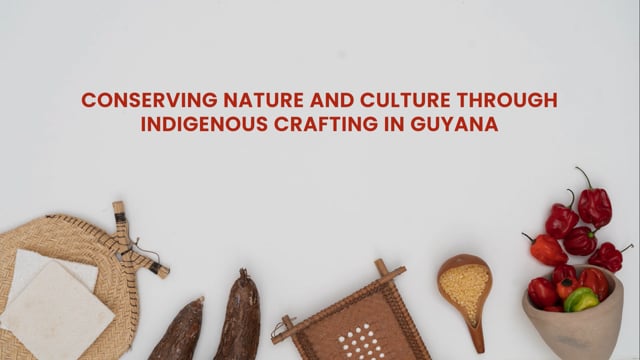Traditional craft practices mediate the relationship between Indigenous communities and nature, and are intimately linked to the everyday practices of farming, fishing and hunting. In Guyana, there are few highly skilled elders capable of producing Indigenous craft in a context of increased out-migration of youth, unsustainable resource use, uncontrolled fires and climate change. This project will promote the role of crafting in maintaining Indigenous culture, identity, sustainable resource management practices and economic livelihoods. It aims to:
Consolidate current evidence on the environmental, cultural and economic sustainability of Indigenous crafting practices in Guyana.
Evaluate how the conservation of craft practices can inform local village resource management plans.
Develop actions to address both short-term and long-term Indigenous craft concerns.
Revitalising traditional craft and their use within Indigenous communities would galvanise a return to sustainable management practices while developing economic opportunities, especially for women and young people. Creating three markets - self/family use, sale or exchange within communities, and sale to people outside of the region – will ensure longer-term sustainability of craft practices. This project is novel in its focus not only on craft making and knowledge, but also the sustainable management of the raw materials - plants, animals, soils – and how to develop craft-based enterprises that take social, economic and environmental factors into account.
The project will run from October 2022 until April 2024.
Showcases 1
Art output 5
Report 1
Video List 2
Location:
Guyana
Partners:
Cobra Collective Guyana
Funder:
National Geographic Society
_FINAL.png)

